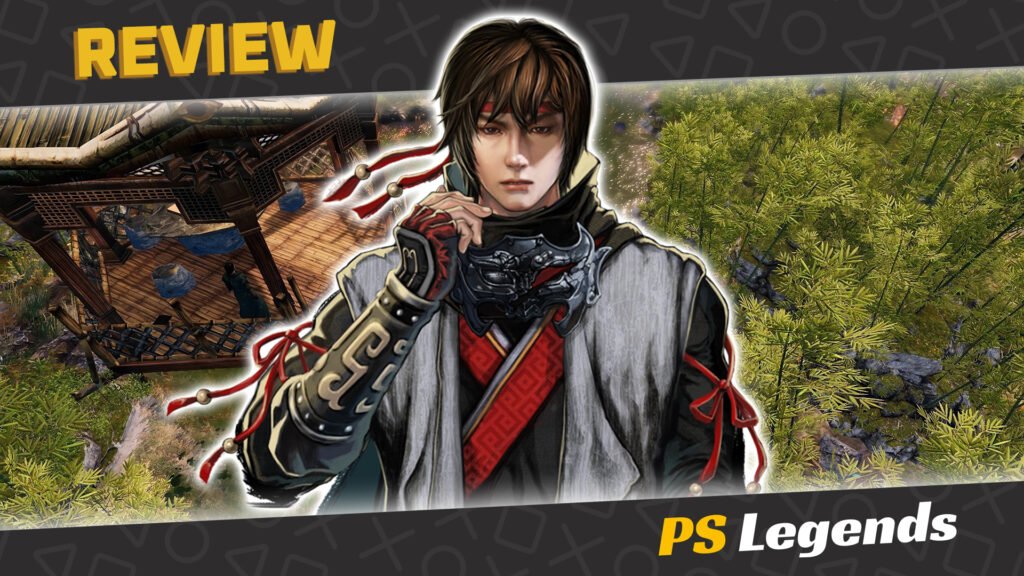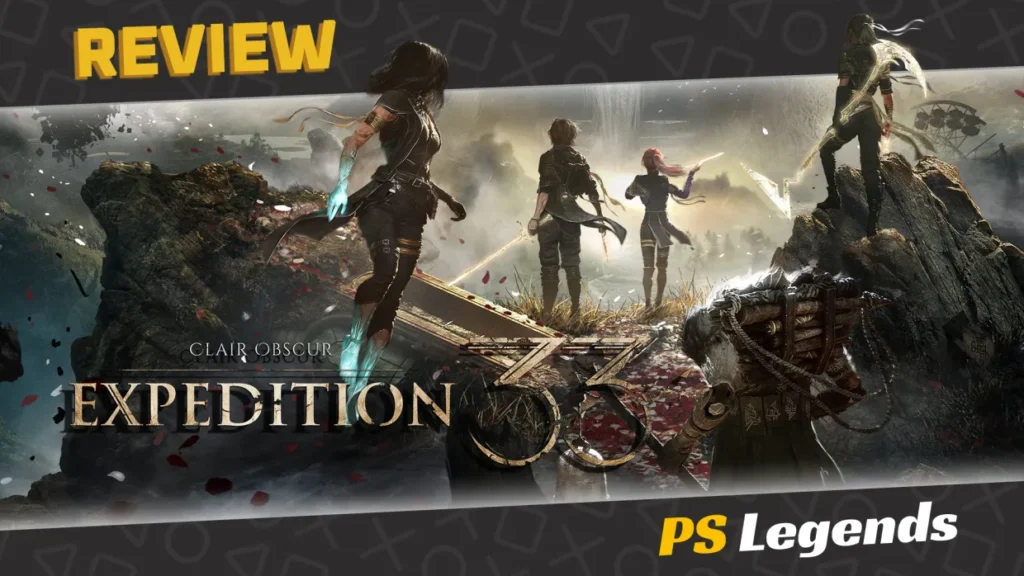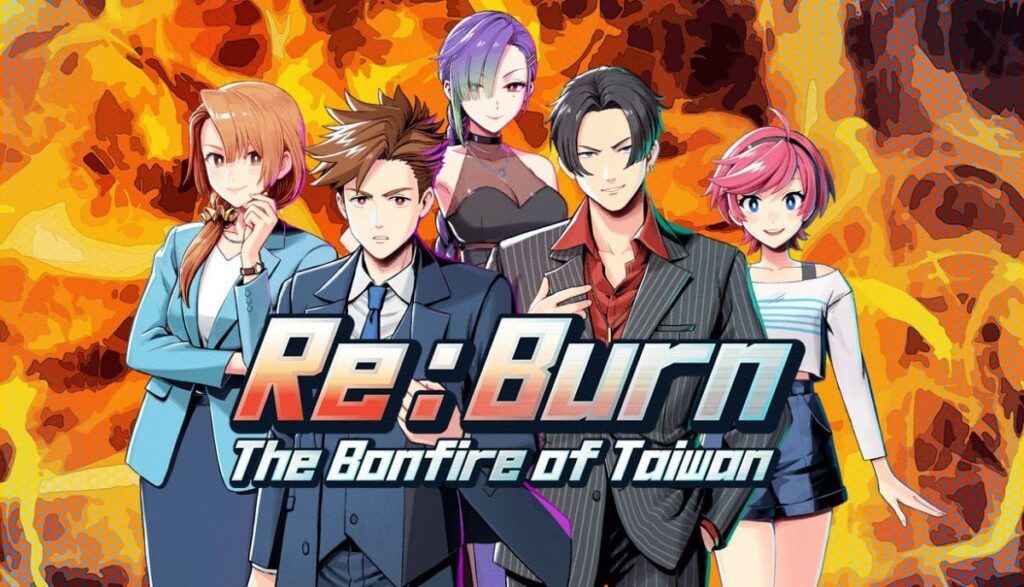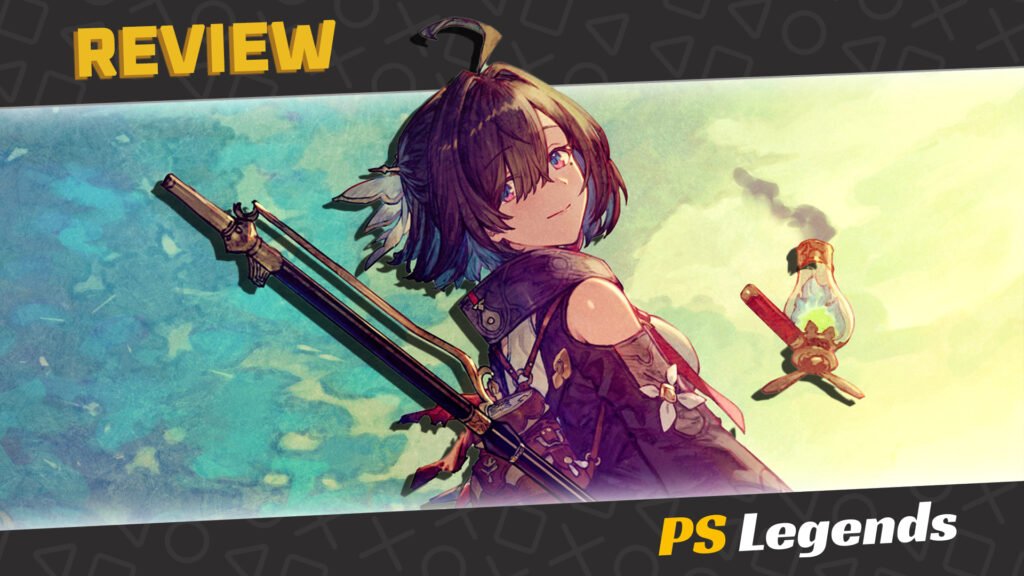When researching more into this game, I had no idea that it had the backing of a real estate group, which just made me feel that I need to play more of these Taiwanese type games. For the first time ever, Justdan Interactive is bringing Fate Seeker II, an RPG that sounds very peculiar, but let’s dive into what makes the game so good.

Fate Seeker II? So Should I Play Fate Seeker I?
First off, don’t be intimidated by the “II” in the title as this is as much a sequel to the original Fate Seeker as Fallout 2 is to Fallout 1. It’s the same world and it has similar gameplay, but the stories are entirely different.
Here you play as Zhuge Yu: an amateur detective/warrior who has inherited his late parents’ drive to expose corrupt officials. He is also on a classic revenge mission in order to punish those who framed his parents just before their untimely death.
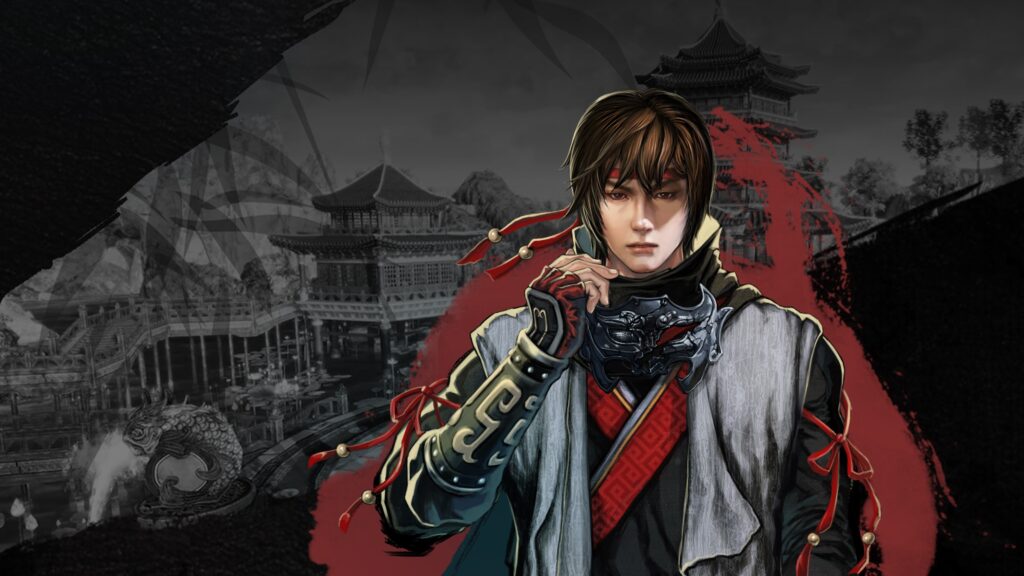
At first, he seemed to be a fairly generic character for the first 30 minutes or so, but I was fascinated with him once the game depicted an otherwise stereotypical ‘hero’ scene. In one particular scene, Zhuge Yu is on the outskirts of a town and he sees a woman in distress.
His helping serves as a simple early-game battle, but once it’s over, you then confront the thieves in a cutscene. During this cutscene the thieves hit you with the usual “Ah, you got us” bit, but instead of Zhung Yu shaking his fist and saying they better not do it again, he kills them for “the sake of others”, as he puts it.
His ethically utilitarian personality was the moment when I actually began paying attention to the cutscenes, as I was immediately engrossed.
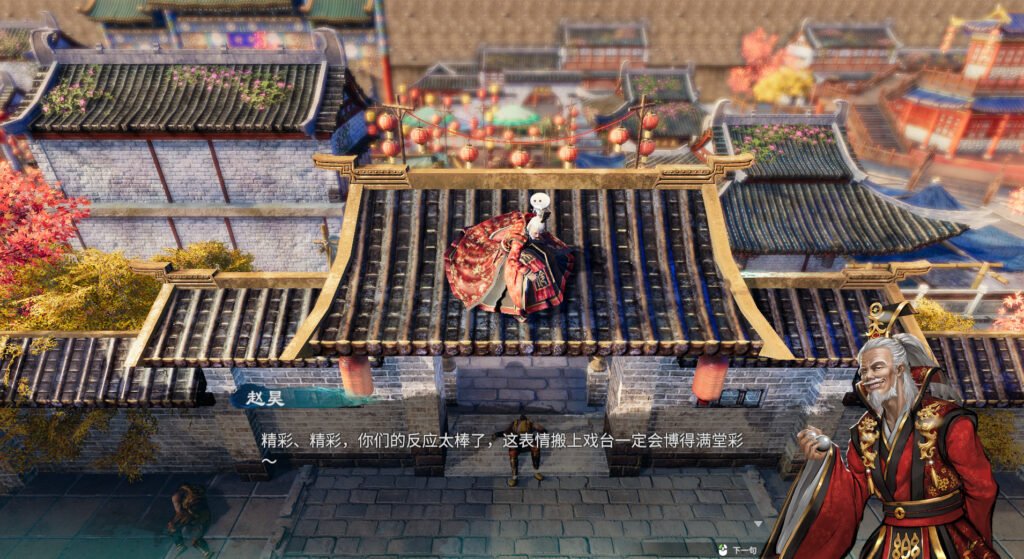
Echoes of Pre-Internet
Just as with any good CRPG, then directions in which any given quest can take you is sort of malleable. How you treat those around you can affect the quests later on.
One thing where your mileage may vary is how the story may shake out for you. There are no guides in English for this game as of the time of writing, and the story can take some wild turns depending on your choices. It reminded me of a bygone era where we didn’t have the Internet to look up the “optimal ending”.

Feudal Chinese Detective
As you explore the world, you can come across various clues. These clues can either influence a main or side mission. Your job is to find which pieces are relevant for which cases, and – more specifically – when those pieces become relevant.
One mechanic which I’ve only ever seen in dedicated detective games is the ability to link two pieces pieces of evidence in order to help form a narrative around whatever case you’re investigating. This is a pretty complex mechanic to chuck into a CRPG, but it works perfectly.
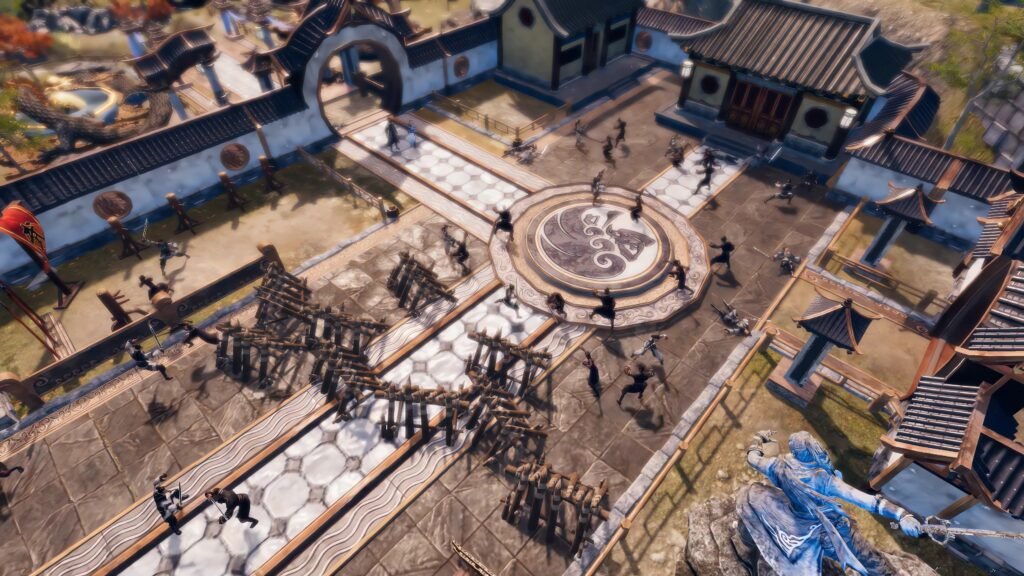
Not only do you have to utilize your gathered evidence during conversations, but you also have to be able to know when an NPC is either lying or withholding information. Just like in Phoenix Wright, you then have to confront them with the contradictory evidence in order to get the true story out of them.
Again, this is something which is usually reserved for games which focus entirely around being a detective but, the way in which it fits into a CRPG is just perfect because it requires you to now be more attentive and inquisitive with regards to your environment.
For a large portion of my playtime, I was just combing the corners of every area with my trusty magnifying glass, trying to sniff out a clue which could help solve whatever case I happened to be chasing at that time.

Martial Arts Mastery
The combat of this game is the primary way in which you level up, as well as the best way to gauge how much you’ve grown since your last level (both in competence and in actual ability).
You have your standard light and heavy attack as well as 5 customizable moves which can be used by pressing various button combinations. Each of these is on a cooldown and so – along with spacing awareness and target prioritization – you have to keep an eye on when they can be used.
Damage you deal will often be negligible, as enemies can be pretty tanky, but one thing this game teaches you early is that after an enemy attacks, there is a small period of time during which they are particularly vulnerable. Landing an attack during this window will stun them for a few seconds and allow you to just tear them to shreds.
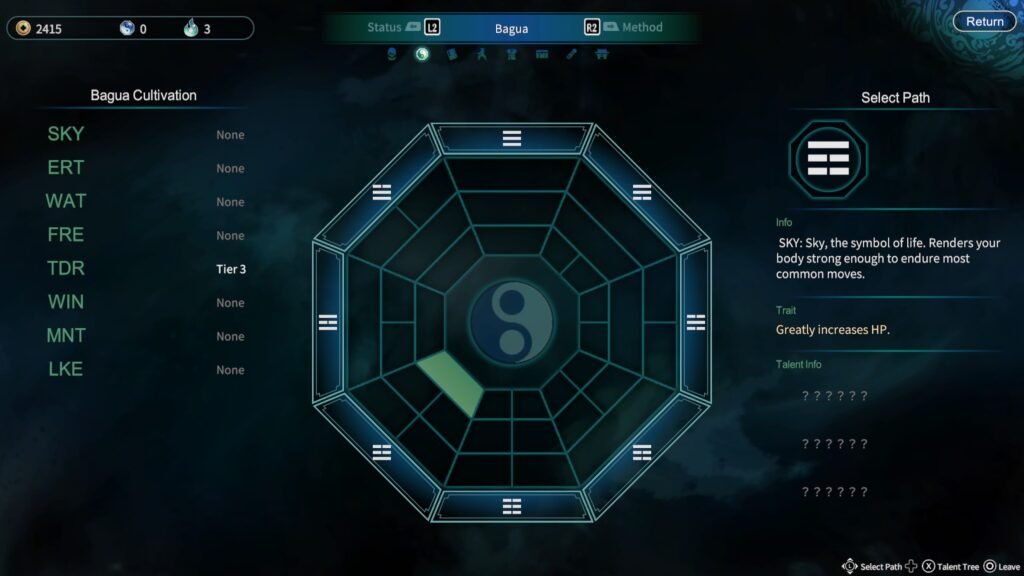
Level Progression
There is a trophy for reaching level 17. This is comparatively anemic for an RPG, which I love. Some games feel so exhausting when they have so many level-ups that they cease to mean anything at a certain point. However, every level in Fate Seeker II is worth getting, every point is worth allocating, and every skill is of use to someone.
When you have an attribute point to spend, you can then choose from one of 8 skill trees. This “martial arts octagon” is how you build your playstyle. While you can spec into a bit of everything, the game recommends that you pursue no more than two. This is not an RPG in which you can get every skill, thus eliminating the risk of levelling up. So there will be consequences to spreading yourself too thin.
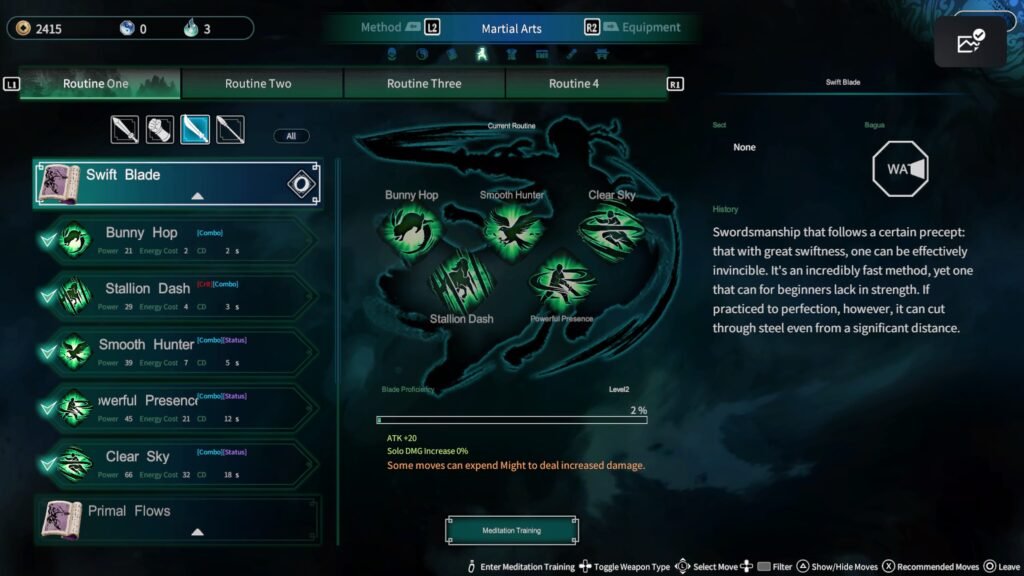
The Eternal Student
Martial arts are not limited to hand-to-hand, you can also learn sword, spear, and curved sword skills. Each of these can mix and matched and each can provide their own benefits. The low damage of one may be offset by its speed, or their heavy nature could be helped by their range or how good they can be at applying debilitations such as bleed to an enemy which may be too fast to pin down.
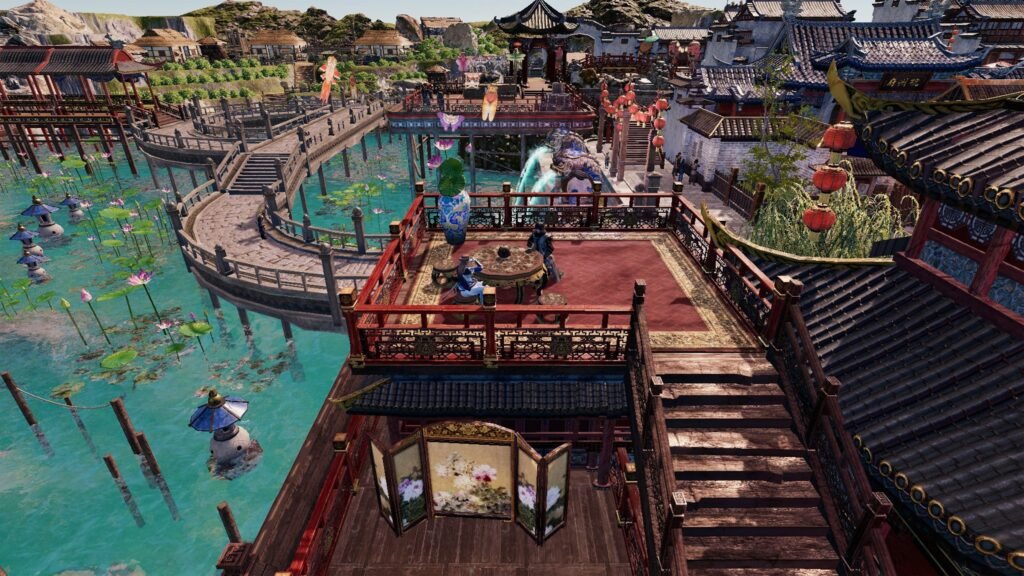
Many of these skills are interchangeable though and much of my decision making came down to how cool they looked despite the fact that I was playing on Hard (something which I say only to indicate how forgiving the combat can be and not to brag. Though it is still a bit of a brag).
This rather simplistic ‘fist is fast but weak, spear is slow but powerful’ choice could be seen as a negative, but I like the fact that while the RPG elements can be strict, you can never really pick a combat skill which feels unviable. The only issue I had with this was that once you’ve determined your own playstyle, many of the late-game combat options can feel pretty superfluous.
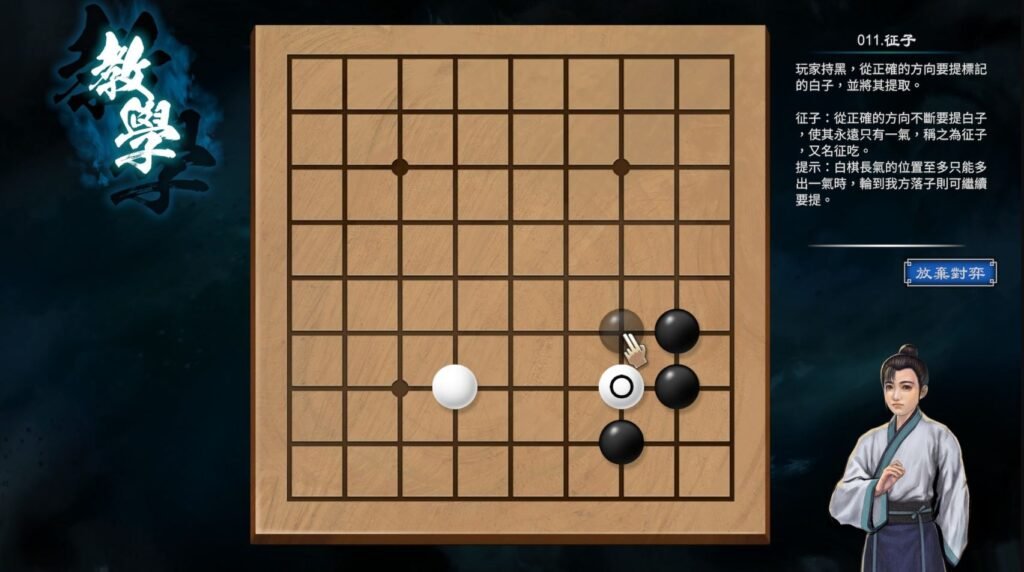
The Concomitant Clutter
My only gripes with this game are with the mini-games/extras. These used to be my favourite parts of these sorts of games. I use to sustain myself for weeks trying to play mahjong in Yakuza. However, after years of those sorts of mini-games, I’ve since soured on them.
I do not understand Go. Thankfully, there is no main quest which requires you to actually be good at Go, but there are a number of Go puzzles which I will never be able to beat. There is also a real estate management mini-game. This, like similar Yakuza mini-games, is just a money generator and – while I’m sure it influences or opens access to some side missions – I could not stomach enough of it to find out.
Had I never burnt myself out on Yakuza, I’m sure I would be charmed by the prospect of managing a feudal property or trying to learn Go, but I’m not. You may like it, but this is the one part of the game which I felt compelled to avoid.

Conclusion
The combat is fluid and open to complex micro-management, but still simple and satisfying enough that you can get through it with even basic skills. The story is shockingly compelling and I actually found myself earnestly invested in the plot and characters for the first time, something that has not happened since Yakuza 1.
The mix of genres is refreshing, and – while I wasn’t in love with any of the minigames – the progression and world building was often so good that I didn’t much care. If you are looking for an RPG which is not likely to have any aspect of it spoiled, then I highly recommend giving Fate Seeker II a try.
Joys
- Wonderful mix of genres
- Vibrant watercolor environments
- Compelling story
- Engaging combat
- True CRPG level progression
Cons
- Combat options can begin to feel somewhat similar in the late-game
- I don’t believe that anybody has ever enjoyed Go
